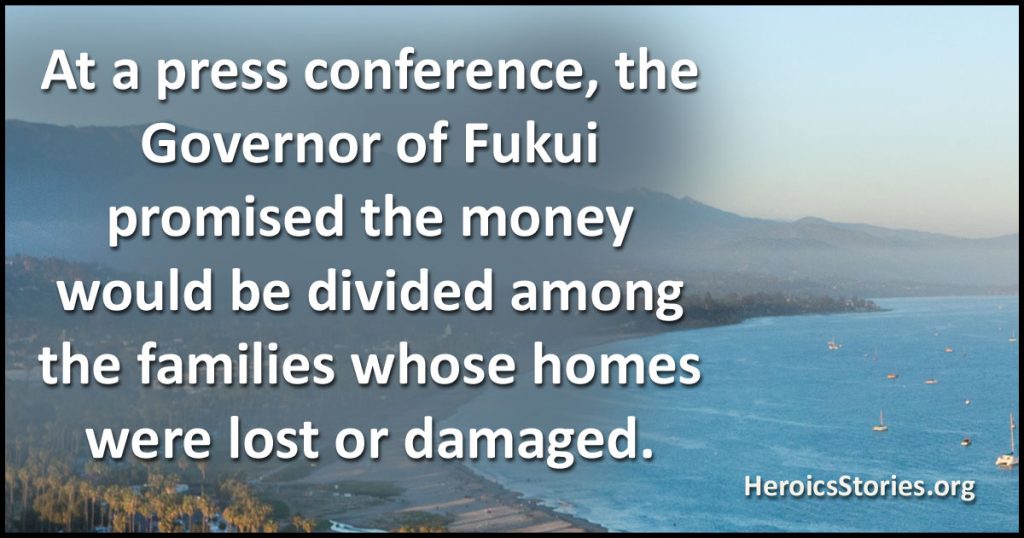by Tony Keyes
Japan

Towards the end of July 2004, Japan’s west coast was beset by another typhoon, the latest in a record-breaking series to hit the mainland. The news featured typhoon rains for days. Large areas in Niigata and Fukui prefectures (states) were devastated. My wife’s in-laws are from that area; we were relieved they escaped real damage. Luckily, they lived on high ground. Others not so lucky were missing; at least three people were dead.
The TV showed roads washed away, bridges collapsed, houses half-buried in mud and flotsam, cars washed away by the floodwaters’ force. It showed images of people on rooftops escaping floods below, waiting to be rescued, waving and calling for help to helicopters filming them. Thousands were evacuated until the floodwaters receded.
Despite the grim coverage, only days later did a report finally bring tears to my eyes. Somebody sent a letter to the Fukui disaster management center, addressed to the prefecture Governor. They expressed condolences to those who had suffered loss, and offered assistance in the form of a lottery ticket. They apologized for sending the ticket without cashing it, and for not delivering it in person, as they wished to remain anonymous.
The prefectural government found that while the return address on the letter was invented, the ticket was real. It was a ticket for the nationwide “TAKARAKUJI” lottery held a month previously. Not just any ticket — the winning, top prize ticket of 200 million yen (US$1.8 million).
After the taped news report, the announcer wondered aloud what kind of person would do such a thing. This person had held this winning ticket over a month, probably planning all the ways they would enjoy their newfound wealth. Probably they wondered how to invest it, how much to splurge, what luxuries to buy first, whether they could quit their job, how their life would change in so many ways.
Yet this person, who received a once-in-a-lifetime stroke of good luck, chose to let it go. They realized that others needed that good luck more than they did. It was a person selfless enough to give it all, rather than give a portion and retain most. Someone humble enough to apologize for not delivering the money in person, and for troubling the prefectural government to cash the ticket. Someone wise enough to realize that helping others may be a bigger prize than lottery winnings.
At a press conference, the Governor of Fukui promised the money would be divided among the families whose homes were lost or damaged. He said he wished he could meet the donor directly, and thank them face to face. Expressing thanks is an important Japanese social responsibility.
Yet the donor’s choices created a gift within a gift. Each person helped by the donor may now wonder of everyone they meet: Is this the one who was selfless, wise and humble enough to give up their lottery ticket to help us in our time of need? Is this who I should thank?
Podcast: Play in new window | Download (Duration: 4:38 — 4.3MB)

